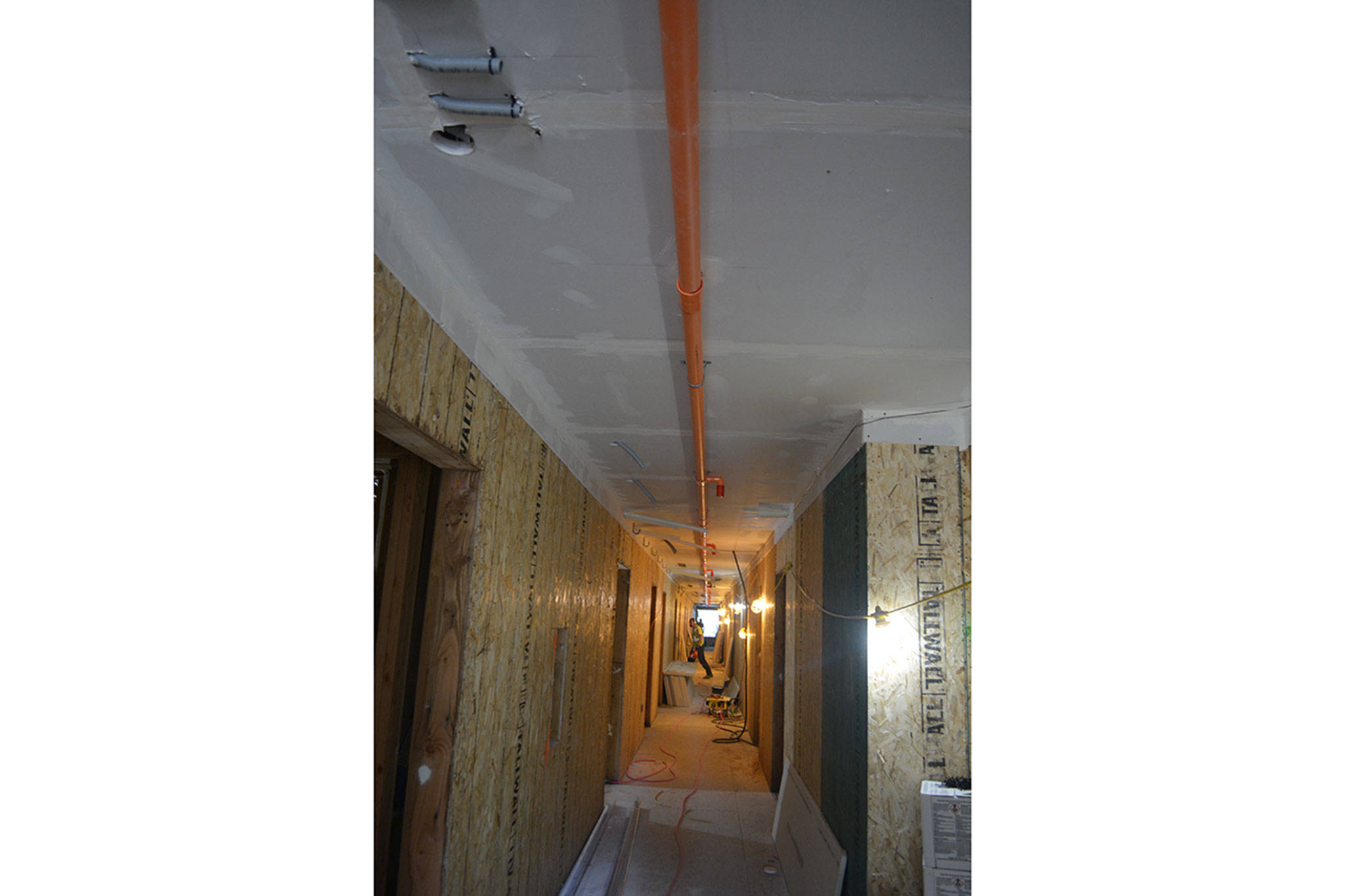MARYSVILLE – If school isn’t your thing – don’t drop out, consider a career in the trades. That’s the message Scott Peterson wants to get out not only to young people, but to others who may be interested in a career change.
While there is a shortage locally in the trades for electricians, plumbers, welders, pipefitters, etc., Peterson, a business agent for UA Local 699, especially is looking for people to install fire suppression equipment. “Sprinks,” as they are affectionately called, can make $48 an hour after five years, $73 an hour when benefits are included, he said.
Matt Norton of Marysville was working on a sprinkler system for the new five-story hotel being built on 116th Street. Before starting this career 16 years ago, he was working at various jobs making $12-$16 an hour.
“It’s never too late to get in,” he said. “It’s a booming trade.” And Peterson said it’s only going to get bigger. A new law says any building that contains 300 or more workers must be retrofitted with sprinklers. Peterson said other trades also are facing shortages because: “Baby Boomers are heading out. There’s a whole generation leaving. All these guys are ready to retire.
“All the trades need help. All the labor unions have each others’ backs,” he added. Peterson said it’s his job to find candidates. They go through an apprenticeship program and receive continuing education until they become a journeyman in five years.
“We’ll teach you everything you need to know,” he said, adding they start out at $20 an hour, but can eventually make $100,000 a year.
Depending on the trade, “The work’s tough,” said Peterson, a 1991 graduate of Marysville-Pilchuck High School. Peterson said some contractors use a transient workforce to save money instead of an apprenticeship program. But when contractors use union workers they are craftsmen.
“They are quality programs invested in their trade,” he said. “Our reputation is what keeps our craft going.” Peterson encouraged local governments to buy local. He said too often in going for the lowest bidded price they are getting substandard work. Plus, by buying local they are putting their own resident-taxpayers to work. They in turn, likely would spend the money in the community.
“Re-invest in your community,” he advised them. “I’d like to see cities be more diligent in who they do business with.”
Peterson added that if cities like Marysville used more local workers, they might be able to pass something like a school bond because they would have more local support. He added that there are many hundreds of ironworkers who live in Arlington-Marysville, for example.
Peterson said the work is physical, but because of the money they make, workers can retire early.
“When I was 18, I didn’t even know what a pension was,” he said. “Time was your friend. But the earlier you get in the better. Time is money. Let the pension work for you,” he said. Steve Miller of Arlington oversees the schooling of the apprenticeships. Participants need to be at least 18 with a driver’s license and a high school diploma or GED. New hires get raises every six months. They work during the day then go to school Tuesday nights from 5-9.
“You don’t have to be a straight A student,” Miller said. “If you struggle with something we can help early or stay late.”
He said the program has a great retention rate. A class of 20 usually keeps 17 until the end of the five years.
He said it’s not hard to be successful in the program.
“If you show up, pay attention and put in a little effort,” you can end up making a great living, Miller said. He said working conditions usually are not that bad. “Most of the time you have a roof over your head,” he said. “But on the high rises you can be exposed to the wind and cold.”
He added that more women are getting into the program. Some of the pipes can be heavy, but in those situations women are just paired with someone else.
Miller said there are about 110 apprentices in the program now. At the end of the five years, they have to pass a state test, then they are usually hired by the same company they already work for.
He said 30 journeymen are at retirement age now.
“They are sticking around because times are good,” Miller said, adding that helps because there aren’t enough apprentices being turned out to replace them.
Miller said he does recruiting at job fairs, and is told the biggest reason many don’t get into the field is because they don’t want to drive to Seattle. “They’d rather work at Boeing for half the money,” he said they tell him. “But for 100 grand you can buy a lot of gas.”


